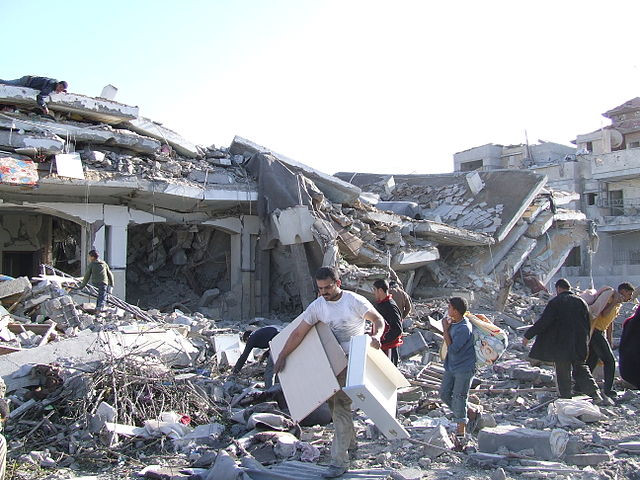The United States told the International Court of Justice on Wednesday that while Israel must allow humanitarian aid into Gaza, it is under no legal obligation to cooperate with the United Nations Relief and Works Agency (UNRWA), the primary provider of assistance to Palestinian refugees. The remarks came during a weeklong hearing at the U.N.'s top court, where judges are considering an advisory opinion on Israel's obligations in the occupied territories.
Josh Simmons, legal adviser for the U.S. State Department, told the court that "there is no legal requirement that an occupying power permit a specific third state or international organization to conduct activity in occupied territory that would compromise its security interests." He added that concerns about UNRWA's alleged links to Hamas were legitimate and that alternative aid mechanisms exist.
Simmons said the U.S. supports humanitarian access to Gaza "with the safeguards to ensure it is not looted or misused by terrorist groups," but warned against what he called "novel legal interpretations" by the court, claiming they would not advance peace or bring hostages home. "They will not create a better tomorrow for Israelis, Palestinians and the region," he said.
Israel imposed a full blockade on Gaza on March 2 and formally banned UNRWA operations earlier this year after alleging that a number of the agency's staff participated in Hamas' October 7 attack that killed roughly 1,200 people. While Israel presented no verified evidence, UNRWA fired nine employees after an internal U.N. probe found possible involvement, though the findings were unverified.
Israel submitted written arguments but is not attending the hearings. In its filing, Israel argued that "the obligations on a state under humanitarian international law are not unqualified" and insisted that the ICJ lacked investigative tools to fairly adjudicate the case. "Israel is fully committed to complying with international law, but that law is not a suicide pact," its written submission read.
Foreign Minister Gideon Saar went further in a separate news conference, saying, "I accuse UNRWA, I accuse the U.N., I accuse the secretary-general and I accuse all those that weaponized international law and its institutions in order to deprive the most attacked country in the world, Israel, of its most basic right to defend itself."
Russia's representative Maksim Musikhin countered that UNRWA "deserved a Nobel Peace Prize," saying, "The urgency of this matter cannot be overstated. Gaza balances on the brink of famine. Hospitals lie in the ruins. Millions of Palestinians in the [Gaza] Strip, as well as in the West Bank and East Jerusalem face existential despair."
Palestinian Ambassador to the Netherlands Ammar Hijazi also addressed the court, accusing Israel of breaching international law. "Israel is starving, killing and displacing Palestinians while also targeting and blocking humanitarian organizations trying to save their lives," he said.
The hearings occur as Gaza's humanitarian infrastructure collapses. The World Food Program said last week its food stocks in Gaza had run out, leaving hundreds of thousands without reliable access to food. Ceasefire efforts remain stalled, and Israel resumed its bombardment on March 18 after claiming it aimed to pressure Hamas into releasing remaining hostages.
The ICJ, presided over by Japanese judge Yuji Iwasawa, is expected to take months to deliver its advisory opinion. While non-binding, the court's ruling could influence international debate on humanitarian obligations during military occupation.






